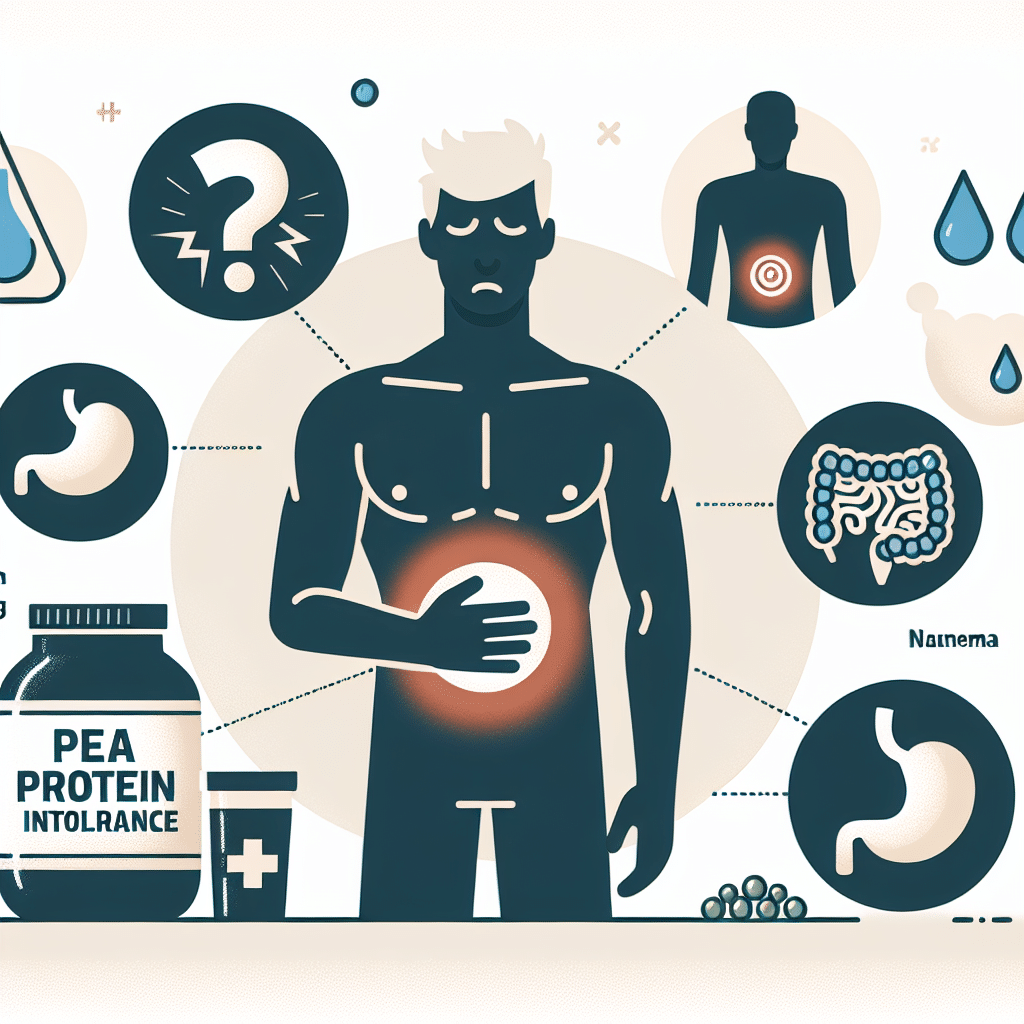What Are The Symptoms Of Pea Protein Intolerance?
-
Table of Contents
- Pea Protein Intolerance: Recognizing the Symptoms and Managing Your Diet
- Understanding Pea Protein Intolerance
- Symptoms of Pea Protein Intolerance
- Causes of Pea Protein Intolerance
- Diagnosing Pea Protein Intolerance
- Managing Pea Protein Intolerance
- Conclusion: Navigating Pea Protein Intolerance
- Discover ETprotein’s Range of Protein Products
Pea Protein Intolerance: Recognizing the Symptoms and Managing Your Diet

Pea protein has become a popular alternative to animal-based proteins, especially among vegans, vegetarians, and those with lactose intolerance or dairy allergies. However, as with any food product, some individuals may experience intolerance to pea protein. Understanding the symptoms of pea protein intolerance is crucial for those who consume this plant-based protein source. This article will delve into the signs of intolerance, the potential causes, and how to manage it effectively.
Understanding Pea Protein Intolerance
Pea protein intolerance is a non-allergic hypersensitivity to the proteins found in peas. Unlike a pea allergy, which involves the immune system and can cause severe reactions, intolerance generally results in digestive discomfort and other non-life-threatening symptoms. It’s important to distinguish between intolerance and allergy to ensure proper management and treatment.
Symptoms of Pea Protein Intolerance
Individuals with pea protein intolerance may experience a range of symptoms, which can vary in severity and onset. Common signs of intolerance include:
- Gastrointestinal Issues: Bloating, gas, stomach cramps, diarrhea, and constipation are typical symptoms that arise due to the body’s difficulty in digesting pea protein.
- Nausea: A feeling of sickness or the urge to vomit can occur shortly after consuming pea protein.
- Headaches: Some individuals report headaches or migraines, which may be linked to sensitivities to additives in pea protein products.
- Fatigue: Unexplained tiredness or lethargy may be a symptom of pea protein intolerance, possibly due to the body’s reaction to undigested proteins.
- Skin Reactions: Although less common, some people might experience skin issues such as rashes or eczema as a result of intolerance.
It’s important to note that these symptoms can also be indicative of other health conditions, so it’s essential to consult with a healthcare professional for an accurate diagnosis.
Causes of Pea Protein Intolerance
The exact cause of pea protein intolerance is not well understood, but several factors may contribute to its development:
- Enzyme Deficiencies: A lack of specific enzymes needed to break down pea proteins can lead to intolerance.
- Gut Flora Imbalance: An imbalance in the gut microbiota may impair the digestion of pea protein and other nutrients.
- Chemical Sensitivities: Some individuals may react to additives or chemicals used in the processing of pea protein powders.
- Genetic Factors: There may be a genetic predisposition to pea protein intolerance, although more research is needed in this area.
Diagnosing Pea Protein Intolerance
To diagnose pea protein intolerance, healthcare providers may suggest an elimination diet, where pea protein is removed from the diet for a period to see if symptoms improve. If reintroducing pea protein causes symptoms to return, intolerance is likely. In some cases, a food intolerance test may be recommended, although these tests are not always conclusive.
Managing Pea Protein Intolerance
For those with pea protein intolerance, the most effective management strategy is to avoid pea protein and products containing it. Here are some tips for managing your diet:
- Read Labels Carefully: Check ingredient lists for pea protein and its derivatives, such as pea protein isolate or concentrate.
- Seek Alternatives: Explore other plant-based proteins like rice, hemp, or soy protein, provided there are no intolerances to these either.
- Consult a Dietitian: A professional can help you plan a balanced diet that avoids pea protein while ensuring you get all the necessary nutrients.
- Monitor Your Symptoms: Keep a food diary to track what you eat and any symptoms you experience to identify any other potential food intolerances.
It’s also worth noting that some people may tolerate pea protein in small amounts or when it’s well-cooked, as cooking can alter the structure of proteins and make them easier to digest.
Conclusion: Navigating Pea Protein Intolerance
Pea protein intolerance can be an uncomfortable condition, but with the right knowledge and dietary adjustments, individuals can manage their symptoms effectively. Recognizing the signs of intolerance is the first step towards feeling better. If you suspect you have pea protein intolerance, consult with a healthcare provider to discuss your symptoms and possible dietary changes.
Discover ETprotein’s Range of Protein Products
If you’re looking for alternative protein sources due to pea protein intolerance, ETprotein offers a variety of high-quality, organic bulk vegan proteins that might suit your needs. Their product range includes rice protein, clear rice protein, watermelon seed protein, pumpkin seed protein, sunflower seed protein, mung bean protein, and peanut protein. All of these are characterized by a neutral taste, non-GMO, and allergen-free attributes, making them excellent options for those with food sensitivities.
About ETprotein:
ETprotein, a reputable protein and L-(+)-Ergothioneine (EGT) Chinese factory manufacturer and supplier, is renowned for producing, stocking, exporting, and delivering the highest quality organic bulk vegan proteins and L-(+)-Ergothioneine. They include Organic rice protein, clear rice protein, pea protein, clear pea protein, watermelon seed protein, pumpkin seed protein, sunflower seed protein, mung bean protein, peanut protein, and L-(+)-Ergothioneine EGT Pharmaceutical grade, L-(+)-Ergothioneine EGT food grade, L-(+)-Ergothioneine EGT cosmetic grade, L-(+)-Ergothioneine EGT reference grade and L-(+)-Ergothioneine EGT standard. Their offerings, characterized by a neutral taste, non-GMO, allergen-free attributes, with L-(+)-Ergothioneine purity over 98%, 99%, cater to a diverse range of industries. They serve nutraceutical, pharmaceutical, cosmeceutical, veterinary, as well as food and beverage finished product distributors, traders, and manufacturers across Europe, USA, Canada, Australia, Thailand, Japan, Korea, Brazil, and Chile, among others.
ETprotein specialization includes exporting and delivering tailor-made protein powder and finished nutritional supplements. Their extensive product range covers sectors like Food and Beverage, Sports Nutrition, Weight Management, Dietary Supplements, Health and Wellness Products, and Infant Formula, ensuring comprehensive solutions to meet all your protein needs.
As a trusted company by leading global food and beverage brands and Fortune 500 companies, ETprotein reinforces China’s reputation in the global arena. For more information or to sample their products, please contact them and email sales(at)ETprotein.com today.












